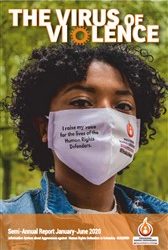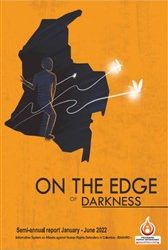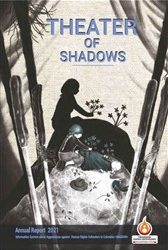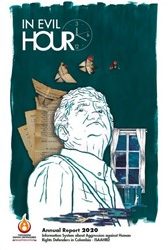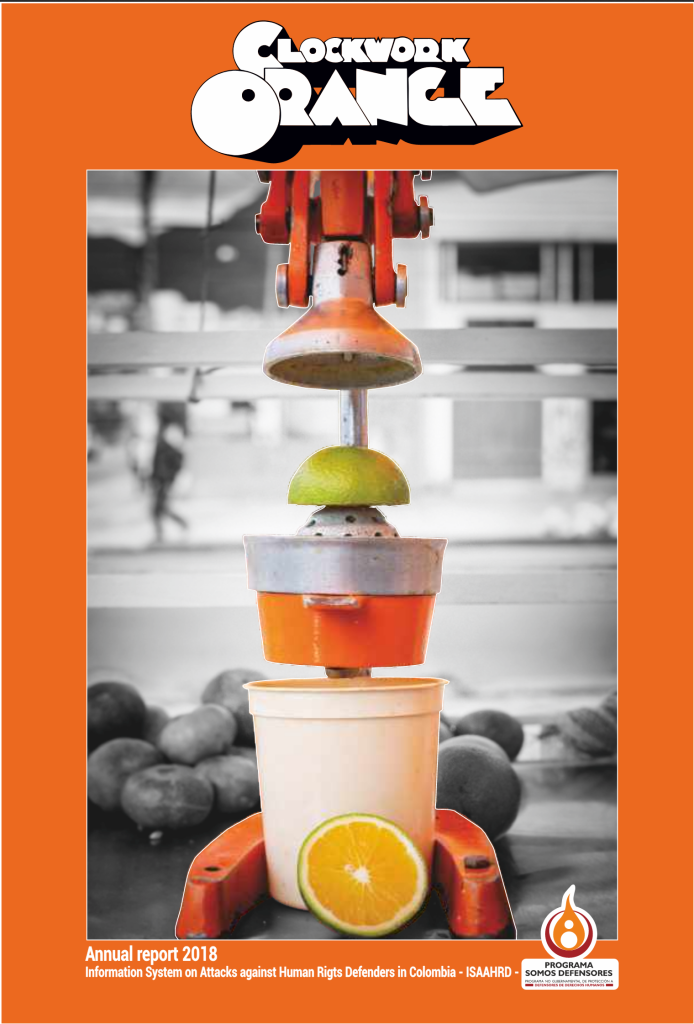
Unfortunately, as usual in recent years, we must begin this report by highlighting the critical situation of violence against human rights defenders in the country. 2018 was, without a doubt, the worst year for defenders, this is shown by the data, since we recorded the highest aggression figures that have been presented since the beginning of our Information System in 2009. That is, not counting the amount of cases that for different reasons are not included, since we start from accepting the existence of underreporting, which means that the level of violence is much higher than we can imagine.
Although the Peace Agreement with the FARC guerrillas and the Government’s dialogues with the ELN posed a historic opportunity for the construction of peace in the country, the political context has given some highly feared turns, which have made the situation of violence even more complex and that have sought to corner social organizations and their leaders in different territories.
The flaws in the implementation of the agreements, the abrupt end of the dialogues and the absence of comprehensive measures that intervene in the circles of violence, among other issues, have triggered an escalation of the armed conflict in which many more armed groups have appeared on the scene with different interests, but with a common need, that of adhering territories to their power, and with them, their populations. Faced with these facts, it is impossible not to feel what is expressed in many sectors, that we have gone back in time in terms of security and that the peace process was only a short oasis from which we left abruptly, especially when the change in government took place.
Despite the evident crisis of human rights and the urgent need for intervention to protect the lives of everyone, and in particular, human rights defenders, the current Government of Iván Duque has opted to take opposing positions to its duty to offer guarantees and has left aside the difficult situation that defenders are going through; dedicating his efforts, instead, to putting other issues at the center, such as the orange economy.
Hence, this report is called A Clockwork Orange, because the Government has shown to us in these months that the orange is priority, because it even crosses the entire National Development Plan, but instead has shown that this marked interest in the economy and its placing in public opinion is a way of omitting and disappearing much more important current issues, such as peace. Therefore, the orange appears in the center, but behind it speeches arise, such as the denial of the existence of the armed conflict, the ignorance of the systematic nature of violence against defenders, the nonrecognition of the existence of many more armed groups and that these are not only linked to drug trafficking, the insistence of the District Attorney’s Office that it has increased the solution for cases of murders of defenders when it is not true and everything is a rhetorical and mediatic game, the nonimplementation of the measures agreed upon with the previous Government and within the framework of the Peace Agreement to generate guarantees of security in the territories, among many other aspects that seem to indicate that Iván Duque is ruling in front of the economy and showing his back to peace.
Given this situation, we have considered it necessary to analyze the way in which the Government is unfolding and its responses to specific aspects such as the security guarantees of human rights defenders. In this sense, the report is divided into four axes; the first chapter raises some issues about the change of government and the changes in peace and security that have occurred with the arrival of Ivan Duque. This, in relation to the escalation of the armed conflict in the country and the evident omission of the seriousness of the situation of defenders in all territories, focusing the Government’s efforts on an issue such as the orange economy and leaving aside the duty of the State to protect life and guarantee rights.
The second chapter is a recount of the situation of human rights defenders during 2018, in a difficult context, the emergence of multiple armed actors and in territories where society has been left at the mercy of territorial disputes, due to the low capacity of the State to cover spaces left by the demobilized FARC guerrillas and to dismantle existing structures and prevent the emergence of new groups; all this has contributed to the fact that, as it has been said, this has been the worst year in human rights matters for defenders in Colombia.
In the third chapter, an analysis of government policies is carried out, especially regarding protection. The progress made with the previous Government is mentioned, and thanks to the Peace Agreement, which has now been stopped and replaced by less effective plans such as the PAO, which are unaware of the reality of the territories and the need for structural intervention; In addition, the speech that the District Attorney’s Office has offered regarding the aggressions against human rights defenders is highlighted, since it has presented small advances in the cases as large percentages of clarification; but it also highlights the work of other State entities such as the Office of the Public Defender and Ombudsman, which have shown concern about the situation of violence against defenders and have tried to generate actions to make the risks visible and build prevention strategies.
Finally, this report includes the analysis of data from the Information System on Attacks against Human Rights Defenders in Colombia SIADDHH, as a result of the monitoring and verification of cases that took place throughout 2018 and that provide an approach to the reality of the country in terms of life affectation and rights of defenders. An analysis of the volume of murders and other aggressions that the System managed to collect, makes it possible to highlight the difficult context in which these activists must work on a daily basis, acknowledging, in addition, that it can be much more complex than what is herein posed.
But in the middle of this difficult panorama it is worth highlighting the resistances and hopeful proposals of the civil population and social organizations. The demonstrations that filled the streets during 2018 show that people are not static, that there are many reflections and bets to make demands to the Government and the State. Social mobilization increased considerably during this year and there was a massive response to calls in which collective rights were defended, demonstrating that although the panorama generates concerns, it remains to recognize social resistance as the moral reserve of citizens who defend the way of peace, as a way to transform the country and take it to a nonviolence stage.
Lastly, we would like to extend our thanks to all the people and the organizations that surround the work we do in the SIADDHH, especially to the Popular Research and Education Center CINEP, to the Colombia Europe United States Coordination CCEEU, to the Indigenous Organization of Colombia ONIC, the Office of the Ombudsman and the Office of the United Nations High Commissioner for Human Rights in Colombia OACNUDH. In addition, we want to recognize the Royal Embassy of Norway in Colombia for its constant political and financial support, and the international cooperation agencies DIAKONIA Sweden, MISEREOR Germany and Terres des Hommes – Schweiz, your support is essential for our work and for the preparation of this report.


